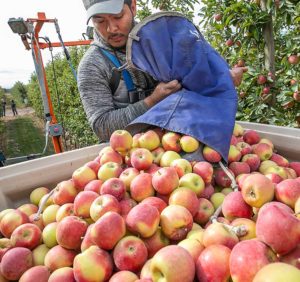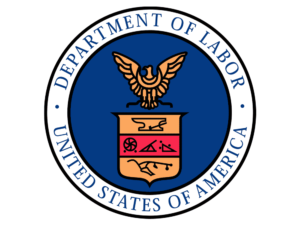The U.S. Department of Labor has enacted updated H-2A regulations that will affect everything from terminating worker contracts to union access to bus seat belts.
A new final rule, called “Improving Protections for Workers in Temporary Agricultural Employment in the United States,” will take effect June 28, though H-2A applications filed before Aug. 28 will use existing rules.
The Labor Department calls the new rules stronger protection against abusive bosses, though farm employer groups say the changes will unnecessarily boost the cost and complexity of agricultural labor.
Among other changes, the new mandates will do the following:
—Allow workers to invite union representatives or legal providers to meet with them in employer-owned housing.
—Allow workers to skip “captive audience” meetings, held by employers to discuss potential union activity.
—Increase the requirements for employers to prove cause when terminating worker contracts.
—Require employers to provide a copy of all recruiter agreements, with contact information.
—Require all workers to wear seat belts while traveling to and from job sites in farm-owned vehicles.
—Expand the authority of state workforce agencies, such as Washington’s Employment Security Department, to cut off services to employers and their representatives, which would leave them unable to use the H-2A visa program.
—Require employers to disclose to the Department of Labor the names and contact information for supervisors of H-2A workers.
—Require employers who use different payment methods, such as piece rate and hourly, to list all potential wage rates on job orders and recruitment advertising and then pay the highest of each method throughout the season. The change will eliminate some flexibility growers have to adjust pay up or down based on changes in conditions, such as weather.
Fruit industry attorneys suggest growers seek legal help implementing these changes.
“There’s a lot of areas within this regulation that do result in the risk of enforcement activity if done improperly,” said Kristi Boswell, a lawyer with Alston & Bird who represents the Northwest Horticultural Council in Washington, D.C.
The final rule does not include some proposals that employer groups, including the Northwest Horticultural Council, a Yakima, Washington, group that represents tree fruit growers in federal issues, pushed back against during the rulemaking process.
For example, the Labor Department dropped a provision that would have required employers to release to labor unions, upon request, the names and contact information of its H-2A employees. They also limited when a worker can request a labor representative during meetings with their employer. The original proposal had a wider range of such meetings.
“While there were some improvements made from what was proposed by the agency last September, this final rule will still dramatically increase the complexity of the H-2A program, reduce the little flexibility that growers currently have, and increase the risk of growers facing delays or outright loss of access to the program for minor infractions to federal, state or local labor-related laws,” said Kate Tynan, senior vice president of the Northwest Horticultural Council.
The organization is supporting efforts by Northwest delegates in the U.S. Congress who are trying to prevent the law from taking effect.
—by Ross Courtney








Leave A Comment